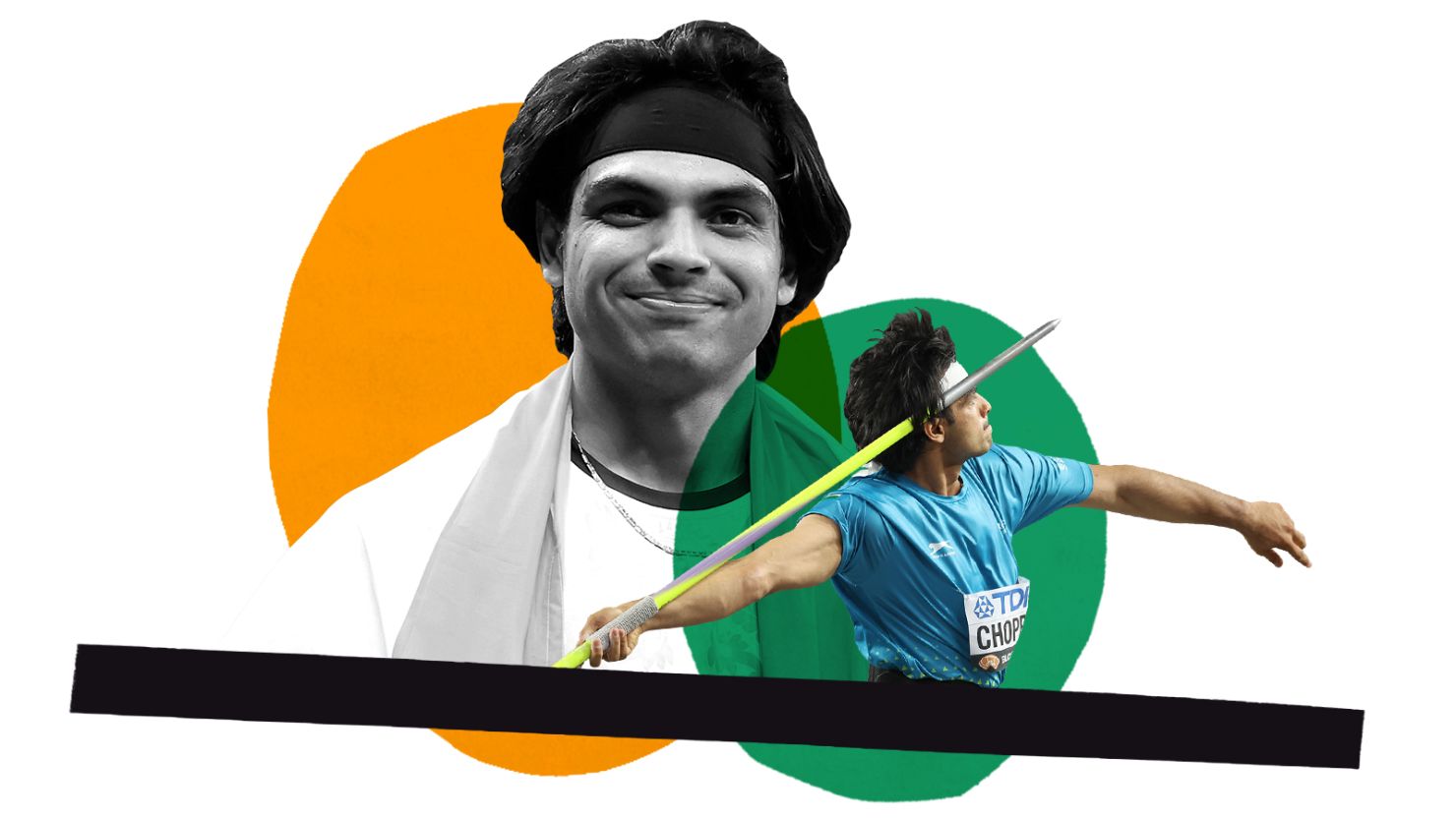In a line-up of India’s sporting heroes, most of whom have gained celebrity status through cricket, Neeraj Chopra is an anomaly.
In fact, the champion javelin thrower has barely bowled a ball or swung a bat since his childhood, even though he can’t help but notice the similarities between his discipline and his country’s favorite past-time.
“I feel that in India, it’s natural, a fast arm,” Chopra tells CNN Sport. “And it’s a basic thing in javelin throwing – if you have a fast arm, you can throw far.”
The South Asian country is home to more than 125 million cricket fans, according to a 2022 report by Ormax Media, but Chopra’s ability to hurl a javelin close to 300 feet has earned him a sizeable following in his own right.
His stardom has only grown with each passing success. After winning Olympic gold in Tokyo three years ago – the first Asian athlete to do so in the javelin – Chopra was crowned world champion in Budapest last year, becoming the first Indian to win a world title in a track and field event of any kind.
It perhaps comes as no surprise, given his historic career to date, that the understated 26-year-old has proven a hit back home.
“So many people from my country, they support me, they watch my competitions,” says Chopra. “Even if I’m competing in the Diamond League, they stay awake until one or two at night and they watch my competition. It’s really amazing that people support athletics.”
Such is his popularity that August 7 is now celebrated as National Javelin Day in India, the anniversary of Chopra winning his Olympic gold medal in Tokyo.
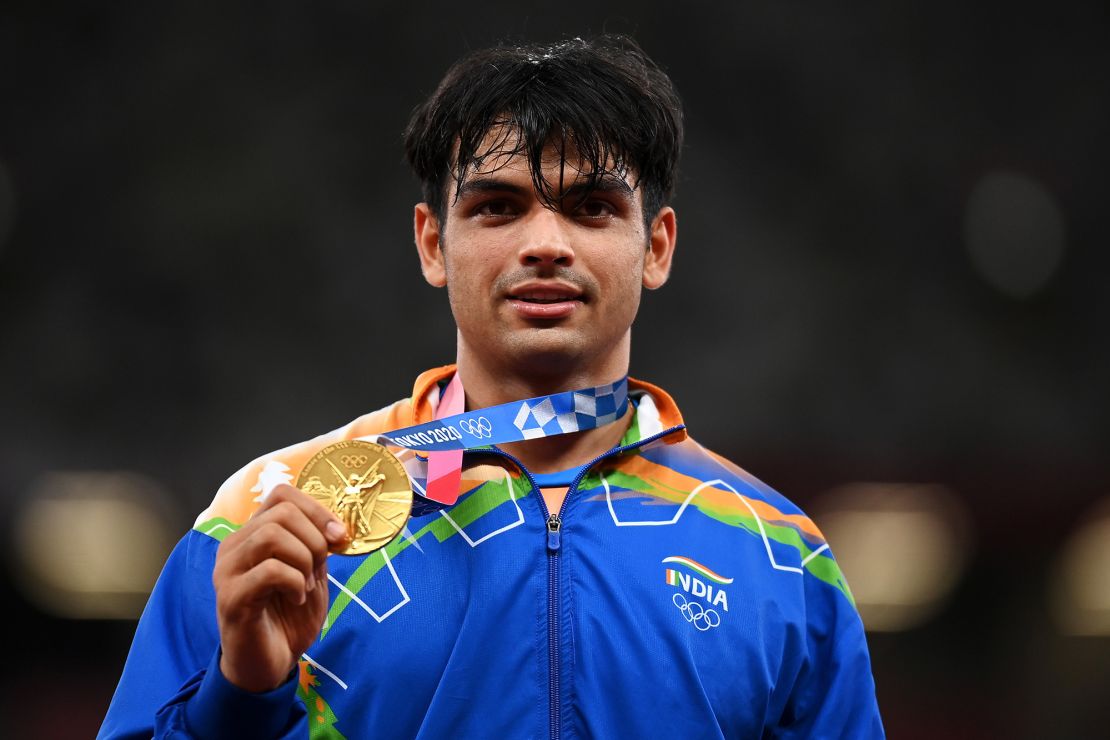
Prior to Chopra, India had practically no history in track and field, winning most of its Olympic medals in field hockey and wrestling.
But now there is genuine excitement each time the superstar athlete competes, and as he jockeys up a runway with a quivering javelin in hand, a nation holds its breath.
“You ask anybody in India who their favorite sportsperson is at the moment, unanimously the answer will be Neeraj Chopra – despite the fact that athletics is not a popular sport,” veteran journalist Norris Pritam, who last year published a book on Chopra’s life and career, tells CNN Sport.
“On the other hand, cricket is a popular sport, a common man’s sport. People talk, breathe, eat cricket, it’s kind of a religion. But still, Neeraj Chopra is the best sportsperson. He’s a hero. He’s absolutely a hero in India.”
Growing up in the rural village of Khandra in the northern state of Haryana, Chopra played cricket and volleyball – another sport in which a fast arm can be a useful weapon – in his pre-teen years.
He was overweight as a child – carrying what he has recently described as “excess flab” – and was frequently told that sport wasn’t for him. But that all changed as soon as he caught sight of a javelin shimmering through the sky at an athletics stadium in the nearby city of Panipat.
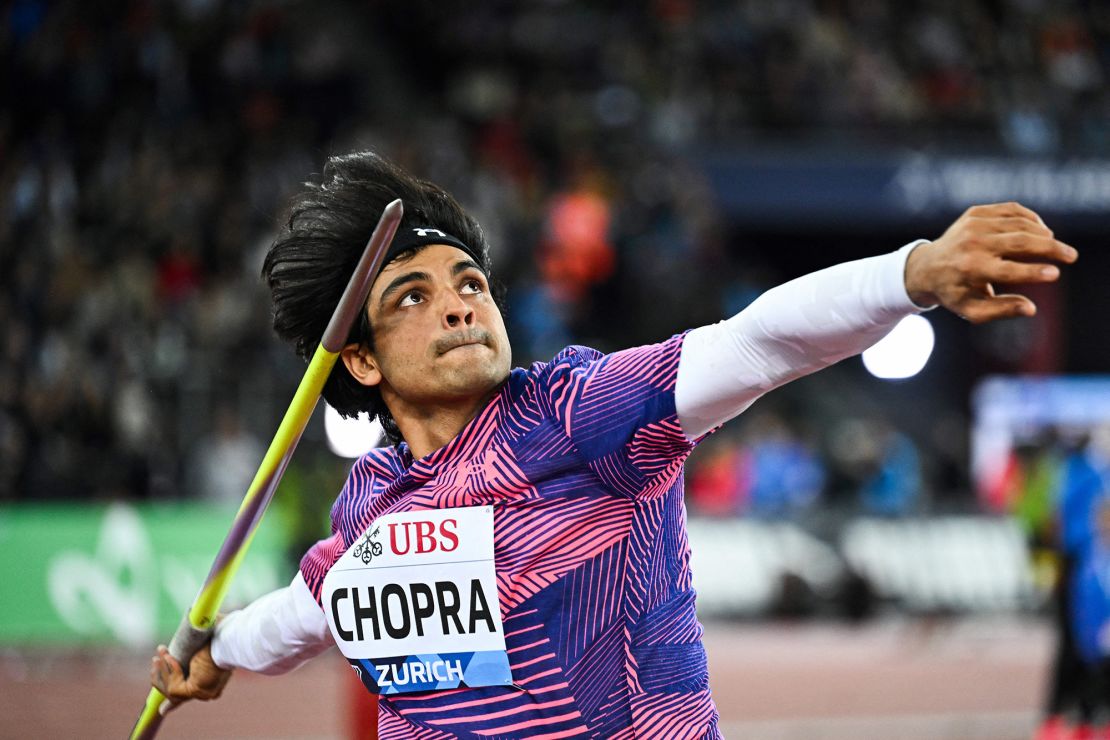
“It was a very random thing for me because there was no background in my family or my whole village – nobody was an athlete, nobody knows about javelin throwing,” says Chopra.
“When I go to the stadium … I really like how the javelin flies and how it’s going like fish swimming in the sea. I really like this thing, and even now when I throw, I always enjoy how the javelin flies.”
This was in 2011, and it was enough for the then-13-year-old Chopra to be inspired to try the sport for himself.
His father and uncles, part of a family of farmers, pooled together enough money to buy a steel javelin, and it was in a plowing field near the family home that Chopra attempted some of his first throws.
A seed was soon sown, and the fledgling athlete would spend hour after hour launching throw after throw.
“He started without any training, without any family background, without any sort of formal school where there could be a javelin thrower,” says Pritam. “In fact, the school in the village had no culture for sport, no grounds for sport.”
Before he had any proper coaching, Chopra relied on YouTube videos to hone his technique. His talent soon became evident, and after moving to a sports academy in the city of Panchkula, his arm speed got faster, his throws further, and international competitions quickly followed.
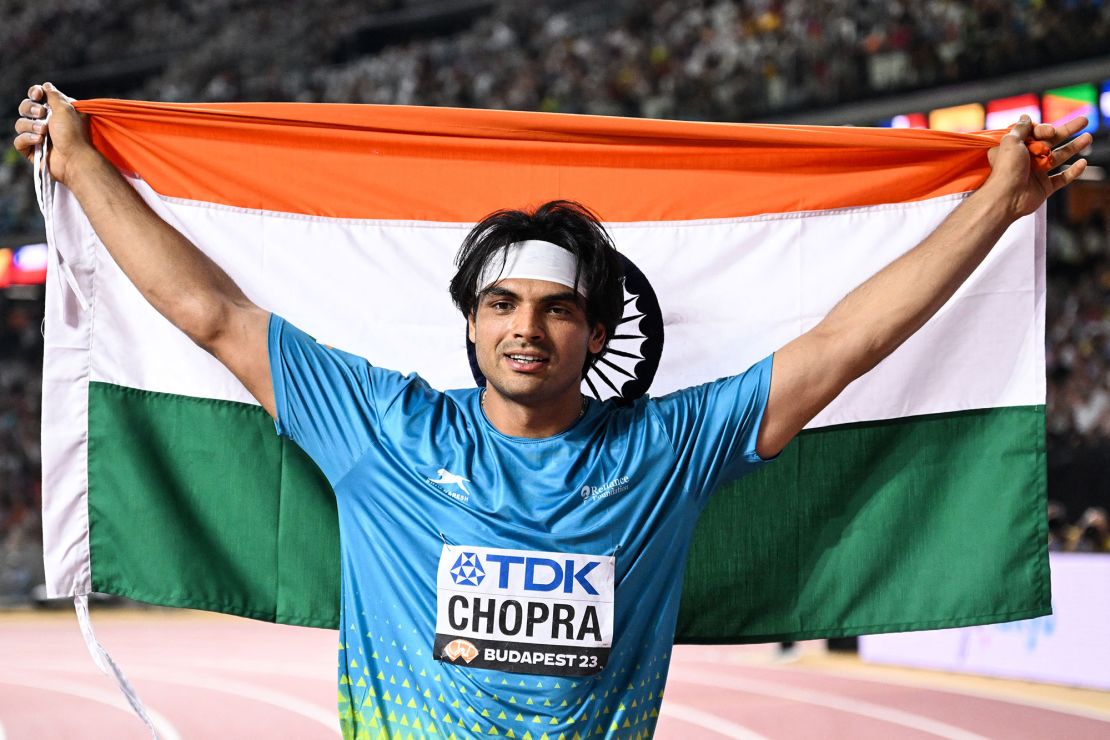
Today, Chopra’s resumé is long and impressive, boasting two Asian Games titles and a Commonwealth Games gold medal on top of his world and Olympic triumphs.
He is the favorite to defend his title at the Paris Olympics, which get underway on July 26, though he’s not allowing thoughts of further success to enter his head at this stage.
“My main focus is to stay healthy,” says Chopra, “but I’m not taking the pressure of winning a gold medal again. I’ll just do my training with 100% of my heart and I’ll give my best … That day will decide who will win a medal.”
Performing under pressure, particularly with such a huge fanbase back home in India, has been a common theme of Chopra’s career. His popularity doesn’t faze him, instead feeding his self-belief right down to his final throw.
“This is not pressure for me,” he adds. “I feel really good when people are talking about me and they say, ‘Okay, Neeraj can win this medal, Neeraj can throw far.’ I always take these things positively.”
Having won his first world title – previously, the most obvious gap in his trophy cabinet – last year, Chopra now wants to throw beyond 90 meters (about 295 feet), which he describes as a “magical mark” in javelin throwing.
Only 24 men in history have ever thrown further than 90 meters, but Chopra’s personal best is only six centimeters (about 2.4 inches) shy of that distance; it is more a matter of when, rather than if, he can tick off that goal.
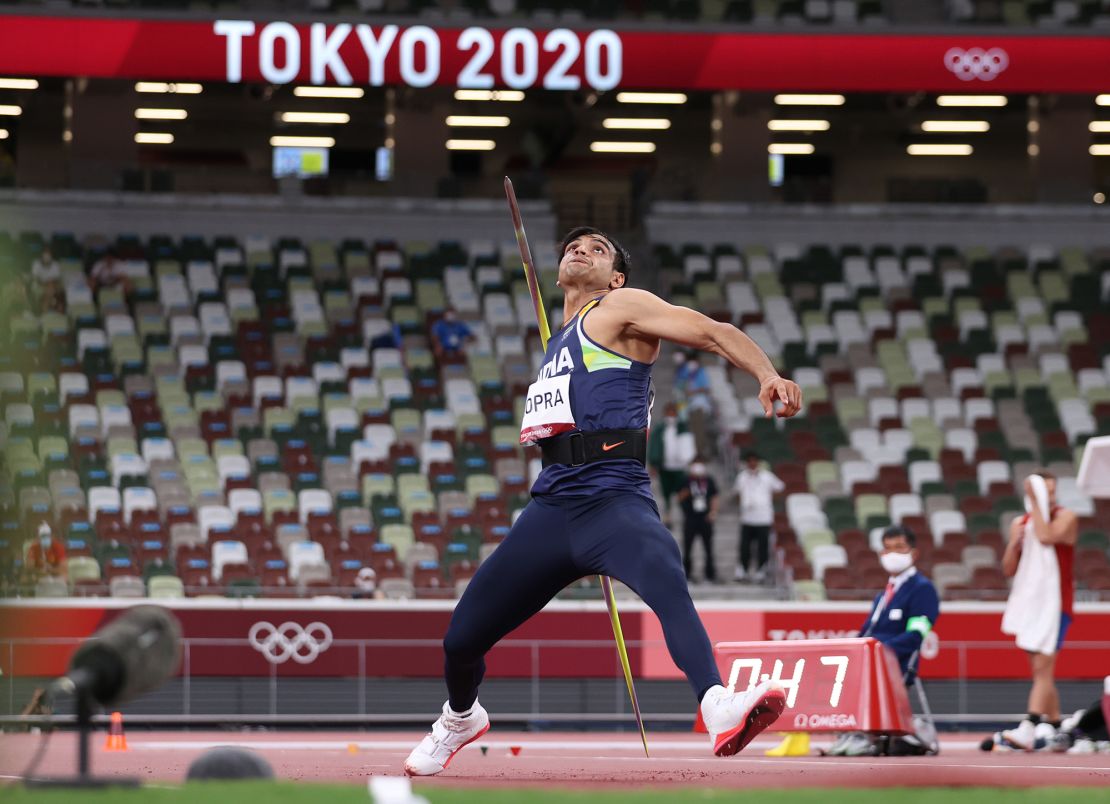
In India, however, he has nothing more to prove, his status as a national hero already secured.
“Everybody knows Neeraj,” says Pritam, “because his posters are there, his billboards are there, he’s in books and magazines and everything.
“You put on the TV and you find Neeraj there talking; he’s a brand ambassador to hundreds of things – sanitation, education, selling products on television. He is a moving billboard, one can say now.”
And if he wins a second gold medal at the Olympics? “He will be treated like God,” adds Pritam.
Chopra, rarely overwhelmed by such adulation, is taking public recognition in his stride. He nearly always trains and competes outside of India, but when he is back home, he is often struck by his far-reaching influence.
“When people meet me, they always say, ‘Our son or our daughter will also start javelin or athletics, and they can also win a medal for India,’” says Chopra. “This is a good thing for me.”
